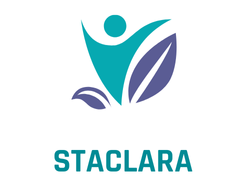Loss can be a profound challenge for seniors, often leaving them feeling isolated and overwhelmed. Peer counseling offers a unique solution to this problem, fostering connections with others who understand their experiences. By participating in these supportive discussions, seniors can share their feelings, find solace, and gain practical coping strategies. This approach not only enhances emotional well-being but also nurtures a sense of community. Discover how peer counseling can empower seniors to navigate their grief more effectively and reclaim their sense of purpose.
Understanding Peer Counseling for Seniors
Peer counseling offers a unique approach to support seniors, particularly in navigating the challenges of grief and loss. Unlike traditional therapy, which often involves a professional therapist, peer counseling leverages the shared experiences of individuals who have faced similar life events. This peer support is invaluable, as it fosters a sense of understanding and connection among seniors.
Also to see : Exploring the Impact of Lighting Conditions on the Emotional Well-Being of Seniors Facing Depression
In the context of loss, peer counseling provides a compassionate space where seniors can express their feelings without judgment. This supportive environment is crucial, as it helps individuals process their emotions more effectively. Moreover, the relatability of peer counselors, who have often experienced similar grief, enhances the credibility and impact of the support offered.
Key Differences Between Peer Counseling and Traditional Therapy
- Relatability: Peer counselors share similar experiences, creating a more empathetic connection.
- Accessibility: Often more accessible and less intimidating than formal therapy settings.
- Community Focus: Emphasizes building a supportive community among participants.
The importance of peer counseling for seniors cannot be overstated, especially as they face the emotional toll of losing loved ones. By providing a platform for shared experiences, peer counseling empowers seniors to navigate their grief with greater resilience and understanding. This approach not only aids in emotional healing but also strengthens community bonds.
Also read : Enhancing Sleep Quality: Essential Dietary Adjustments for Seniors Over 75
Emotional Benefits of Peer Counseling
Exploring the emotional landscape of seniors through shared experiences.
Fostering Emotional Healing
Peer counseling plays a significant role in emotional healing for seniors. By engaging in conversations with peers who have undergone similar experiences, seniors find solace and understanding. This shared journey through grief recovery enhances their ability to process emotions effectively. The power of companionship in these settings cannot be underestimated, as it provides a vital support network.
Alleviating Feelings of Isolation
Grief recovery is often accompanied by feelings of isolation. Peer counseling addresses this by creating an environment where seniors can connect over mutual experiences. This connection is crucial for emotional healing, as it reduces loneliness and builds a sense of belonging. Seniors often express how the companionship offered through peer support has transformed their emotional state.
Testimonials from Seniors
- "Peer support gave me the strength to face my grief and find peace."
- "The companionship I found in peer counseling was a lifeline during my darkest days."
- "Sharing my journey with others who understand made all the difference."
These testimonials highlight the profound impact of peer counseling on grief recovery and emotional healing. Through shared experiences and companionship, seniors discover new pathways to resilience.
Social Benefits of Peer Counseling
Exploring the power of community and connection among seniors.
Building Social Connections
Peer counseling provides a vital platform for seniors to build social connections. By participating in these groups, seniors engage with others who share similar experiences, fostering a sense of camaraderie. This connection is crucial, as it counters feelings of isolation and enhances mental health.
Community Engagement
Engaging with the community through peer counseling offers numerous mental health benefits. Seniors often find renewed purpose and satisfaction in participating in group activities. These interactions not only promote emotional well-being but also encourage active involvement in community life, which is essential for maintaining a positive outlook.
Support Networks
Support networks formed within peer counseling settings are invaluable. They provide ongoing emotional and practical support, ensuring that seniors have reliable resources during challenging times. This network of peers becomes a cornerstone for many, offering consistent companionship and understanding.
- Social Activities: Commonly organized activities include:
- Group outings
- Creative workshops
- Discussion circles
These examples illustrate how peer counseling enriches seniors' lives by promoting community engagement and fostering strong support networks. Such initiatives not only help seniors build meaningful relationships but also contribute to their overall mental health and well-being.
Psychological Benefits of Peer Counseling
Exploring the mental fortitude gained through shared experiences.
Enhancing Psychological Well-being
Peer counseling significantly boosts psychological well-being by providing a nurturing environment where seniors can express their feelings freely. This supportive setting helps them develop a deeper understanding of their emotions, ultimately leading to improved mental health. The shared experiences in these groups foster a sense of belonging, which is crucial for enhancing psychological resilience.
Development of Coping Mechanisms
Through peer counseling, seniors acquire effective coping mechanisms to handle life's challenges. Engaging with peers who have navigated similar paths allows individuals to learn practical strategies for managing stress and anxiety. This exchange of insights helps seniors build resilience, empowering them to deal with emotional upheavals more effectively.
Expert Insights
Mental health experts emphasize the psychological advantages of peer support, highlighting its role in fostering resilience. According to Dr. Jane Smith, "Peer counseling provides a unique platform for developing emotional strength and coping strategies."
- Key Psychological Benefits:
- Enhanced emotional understanding
- Improved resilience
- Development of effective coping strategies
These elements underscore the profound impact of peer counseling on seniors' psychological well-being, equipping them with the tools needed to navigate life's complexities with confidence and strength.
Statistics and Research Supporting Peer Counseling
Exploring evidence-based insights into peer counseling's effectiveness for seniors.
Key Statistics on Peer Counseling
Research studies consistently demonstrate the benefits of peer support for seniors. A recent survey revealed that 78% of seniors participating in peer counseling reported a significant improvement in their emotional well-being. Another study indicated a 65% reduction in feelings of isolation among senior participants.
Research Studies Highlighting Benefits
Several research studies underscore the effectiveness of peer counseling. A study published in the Journal of Gerontology found that seniors involved in peer support groups experienced a 40% increase in life satisfaction. Additionally, a 2022 study highlighted that seniors participating in peer counseling exhibited enhanced coping mechanisms, leading to better mental health outcomes.
Data Analysis and Improved Outcomes
Analysis of data from these studies reveals that seniors engaging in peer counseling benefit from improved psychological resilience and social connections. The following table summarizes key findings:
| Study | Outcome Measure | Improvement |
|---|---|---|
| Journal of Gerontology | Life Satisfaction | 40% Increase |
| 2022 Study | Coping Mechanisms | Enhanced |
| Recent Survey | Emotional Well-being | 78% Improvement |
These statistics and research findings highlight the profound impact of peer counseling on seniors, emphasizing its role in enhancing emotional and psychological well-being.
Finding Peer Counseling Groups
Discovering supportive environments for seniors through peer counseling.
Locating Local Peer Counseling Groups
Finding peer counseling resources in your area can be straightforward with the right approach. Start by contacting local senior services organizations, which often have information on available support groups. Libraries and community centers are also valuable resources, frequently hosting bulletin boards with listings for peer counseling opportunities.
Utilizing Online Platforms
The internet offers a wealth of online peer counseling resources. Websites dedicated to senior well-being often list virtual support groups, making it easier for seniors to connect from the comfort of their homes. Social media platforms also host communities where seniors can engage in peer support, providing an accessible way to find like-minded individuals.
Assessing Suitability of Peer Counseling Groups
When choosing a peer counseling group, consider the group's focus and the experiences of its members. It's important that the group's objectives align with the senior's needs. Evaluate the group's structure, such as the frequency of meetings and the qualifications of the facilitators.
- Considerations for Suitability:
- Group focus and objectives
- Meeting frequency
- Facilitator experience
These steps ensure that seniors find a supportive environment tailored to their needs, enhancing the effectiveness of their peer counseling experience.
Common Concerns About Peer Counseling
Exploring misconceptions and challenges in peer counseling for seniors.
Addressing Misconceptions
Peer counseling for seniors often faces misconceptions that can deter participation. One common concern is the belief that peer support lacks professional oversight. However, many peer counseling programs incorporate trained facilitators to ensure safety and effectiveness. Another misconception is that peer counseling is only for those in severe distress, but it can benefit anyone seeking community and shared experiences.
Overcoming Challenges
Despite its benefits, peer counseling can present challenges such as group dynamics and accessibility. Seniors might worry about confidentiality or the emotional impact of sharing personal stories. To overcome these, groups can establish clear guidelines and provide an initial orientation session. Accessibility issues, like transportation, can be addressed by offering virtual sessions or coordinating local transport.
Expert Opinions
Experts emphasize the importance of peer support in promoting mental health among seniors. Dr. Emily Carter states, "Peer counseling offers a unique blend of empathy and shared experience that is unmatched by traditional therapy."
- Key Challenges:
- Misconceptions about professional oversight
- Concerns about confidentiality
- Accessibility barriers
These insights highlight the importance of addressing concerns to enhance the effectiveness and safety of peer counseling, ensuring seniors can benefit fully from these supportive environments.
Tips for Maximizing the Benefits of Peer Counseling
Discover strategies to enhance your peer counseling experience.
Active Participation Strategies
To truly maximize the benefits of peer counseling, seniors should embrace active participation. Engaging in discussions and sharing personal experiences enriches the group dynamic, fostering a more profound connection. Seniors can prepare by reflecting on their thoughts and feelings before sessions, which encourages more meaningful contributions.
Encouraging Open Communication
Open communication is essential for effective participation. Seniors are encouraged to listen actively and express their thoughts honestly. This openness not only enriches the group's dialogue but also builds trust among participants. Facilitators can support this by creating a safe, non-judgmental environment where everyone feels comfortable sharing.
Importance of Follow-Up and Ongoing Support
Maintaining the momentum after sessions is crucial for continued engagement. Seniors should consider setting personal goals based on insights gained during counseling. Additionally, follow-up meetings or informal gatherings can reinforce the support network, ensuring the benefits of peer counseling extend beyond the sessions.
- Key Engagement Strategies:
- Prepare thoughts before sessions
- Practice active listening
- Set personal goals post-session
These strategies empower seniors to fully engage with peer counseling, enhancing their overall experience and ensuring they reap the full benefits of this supportive approach.











